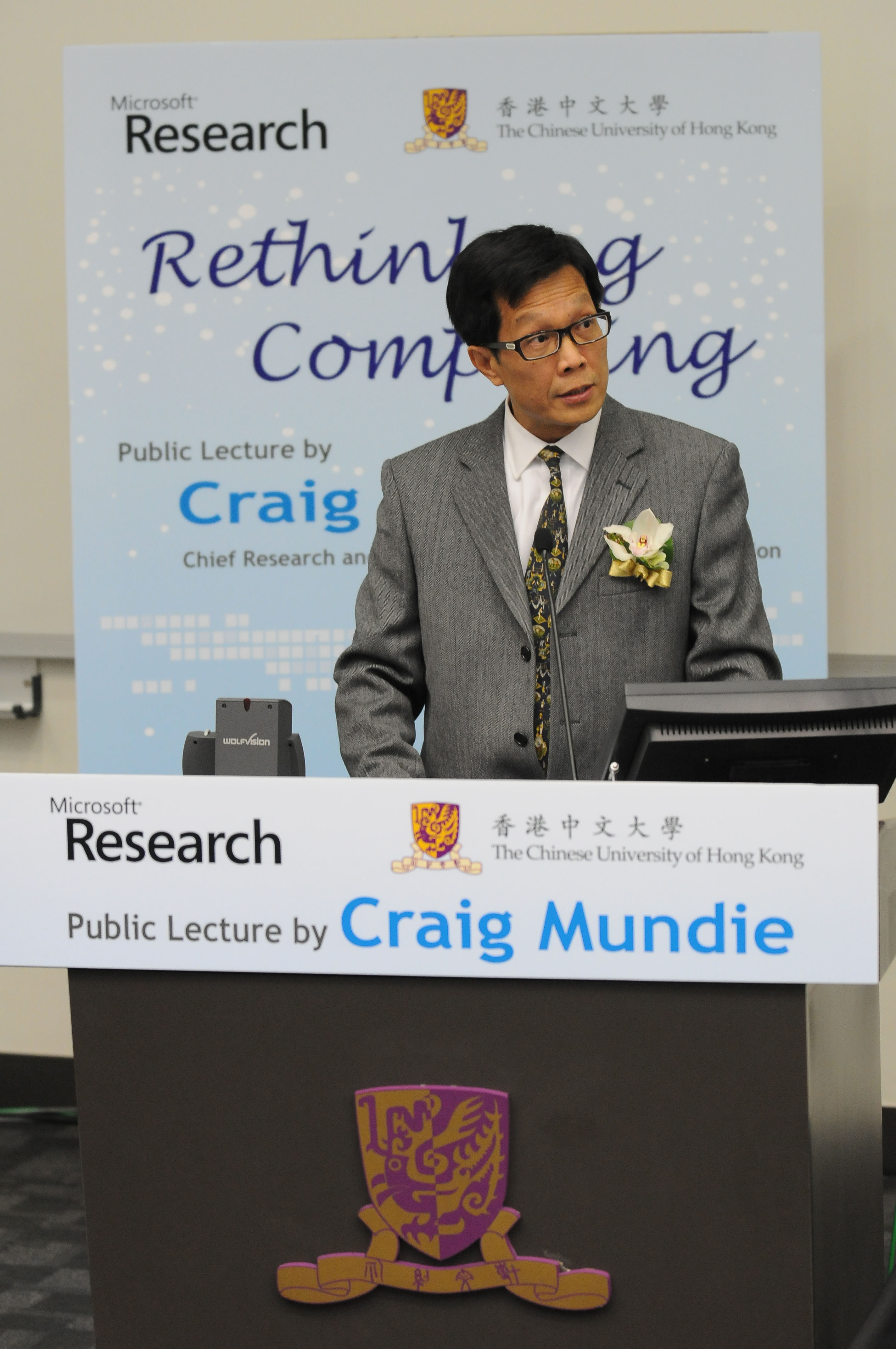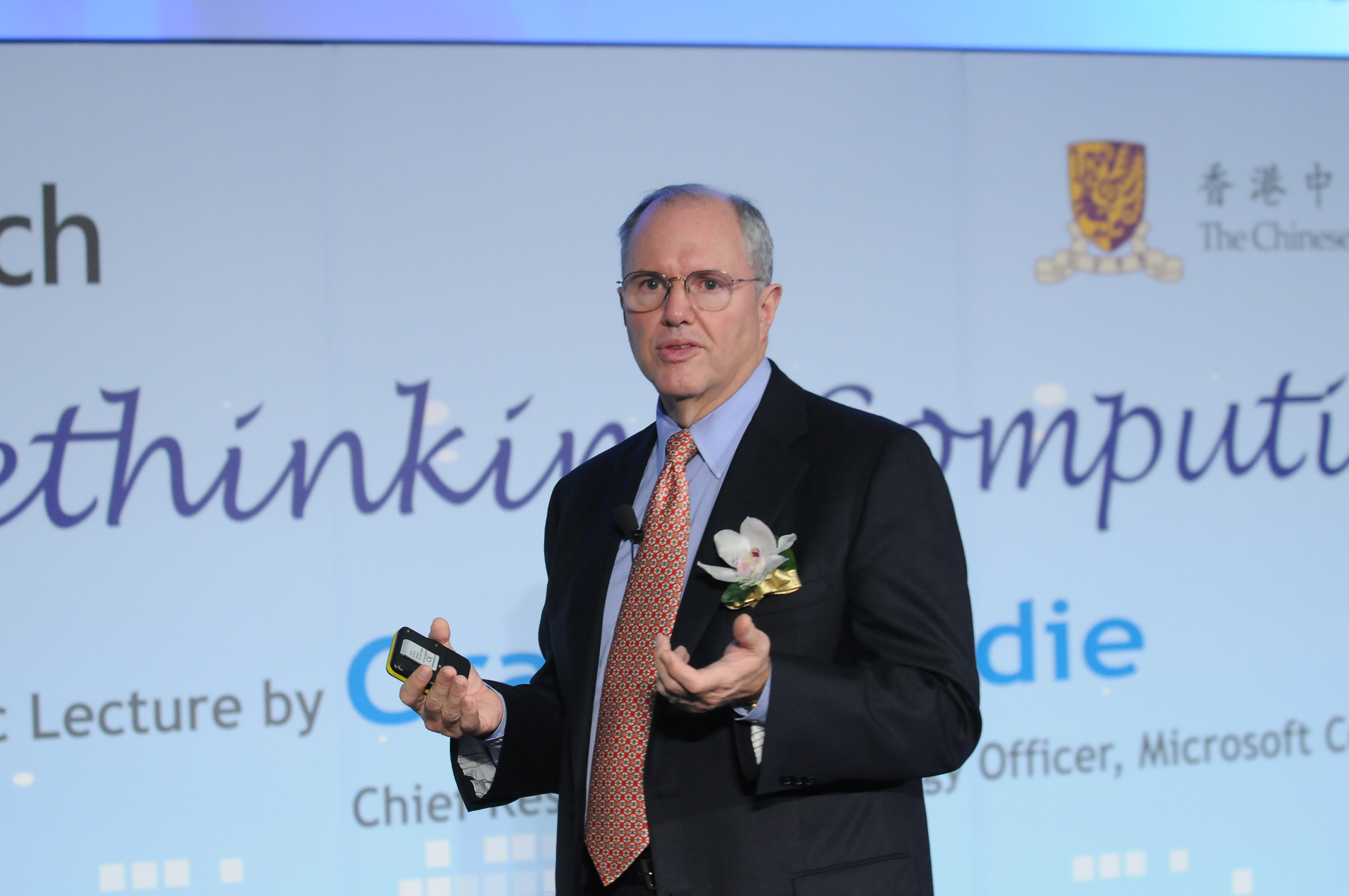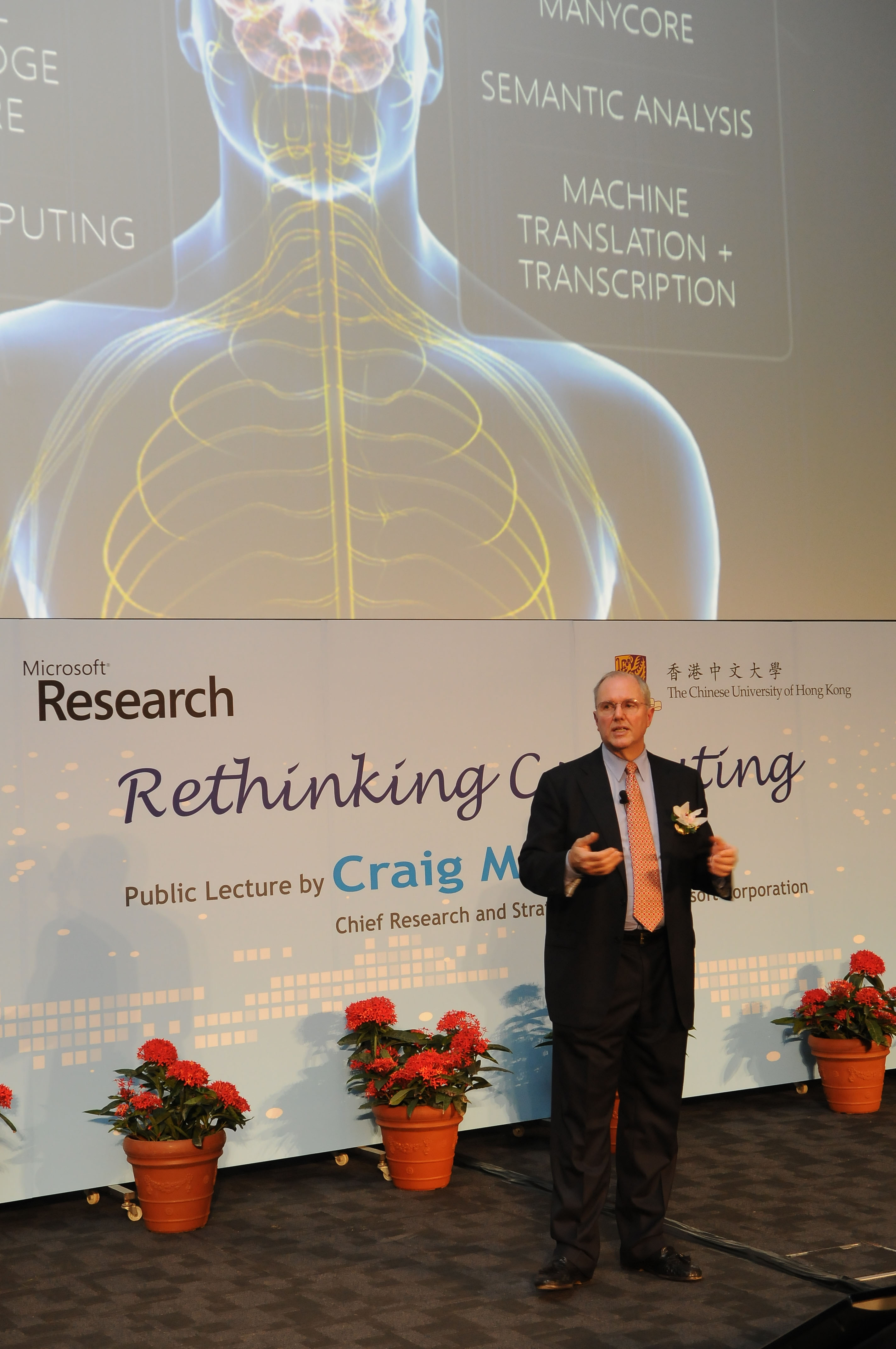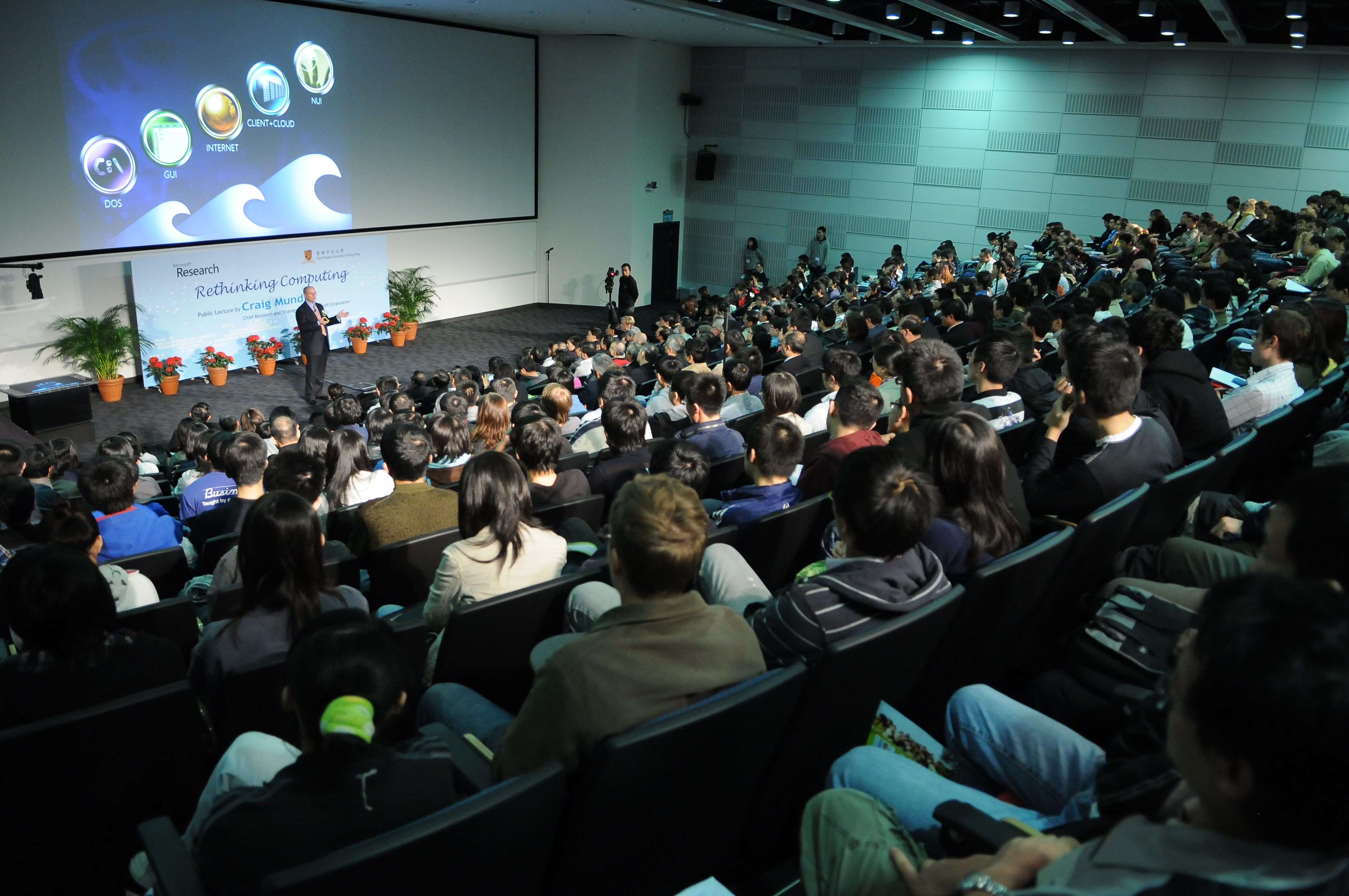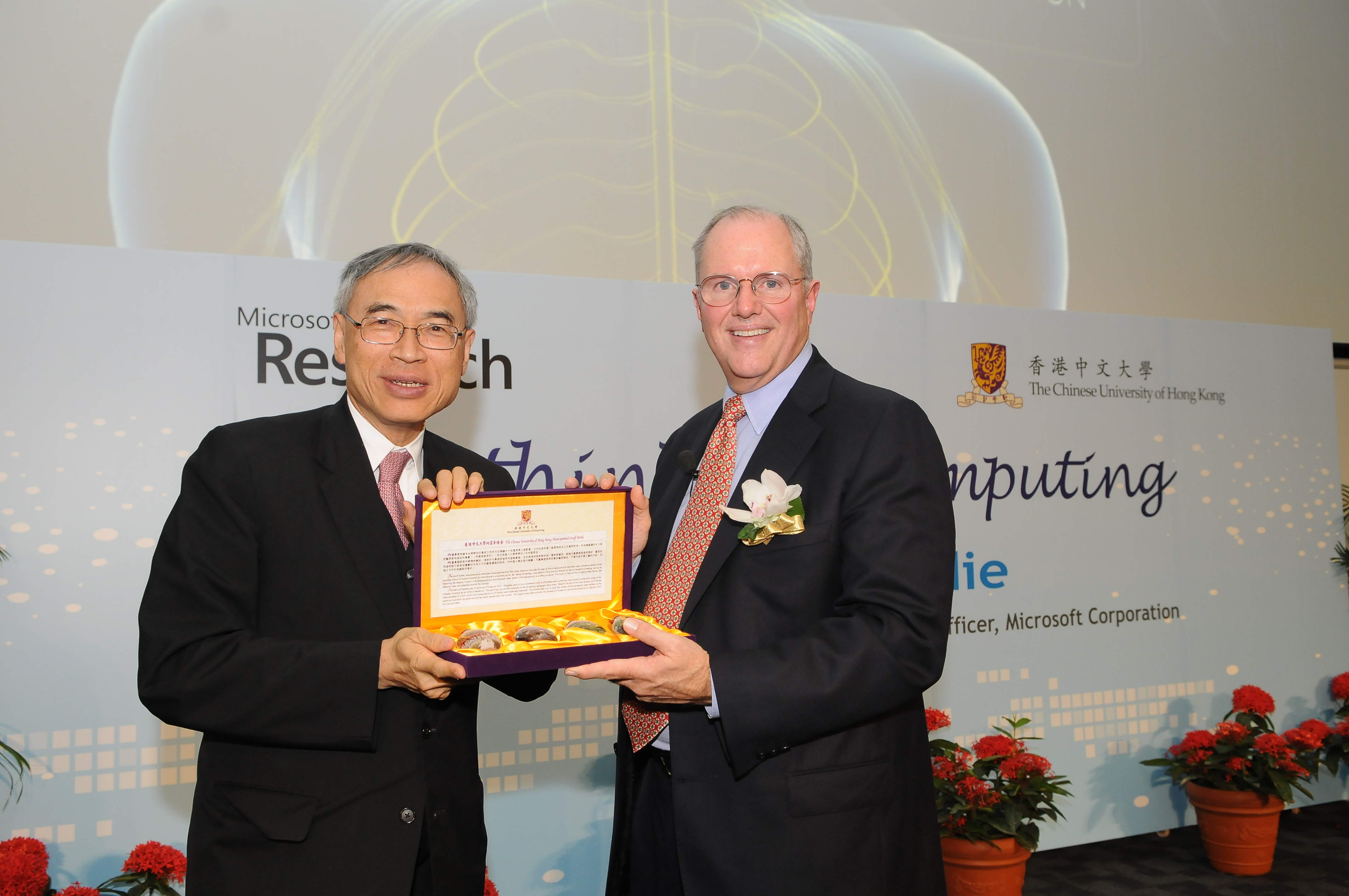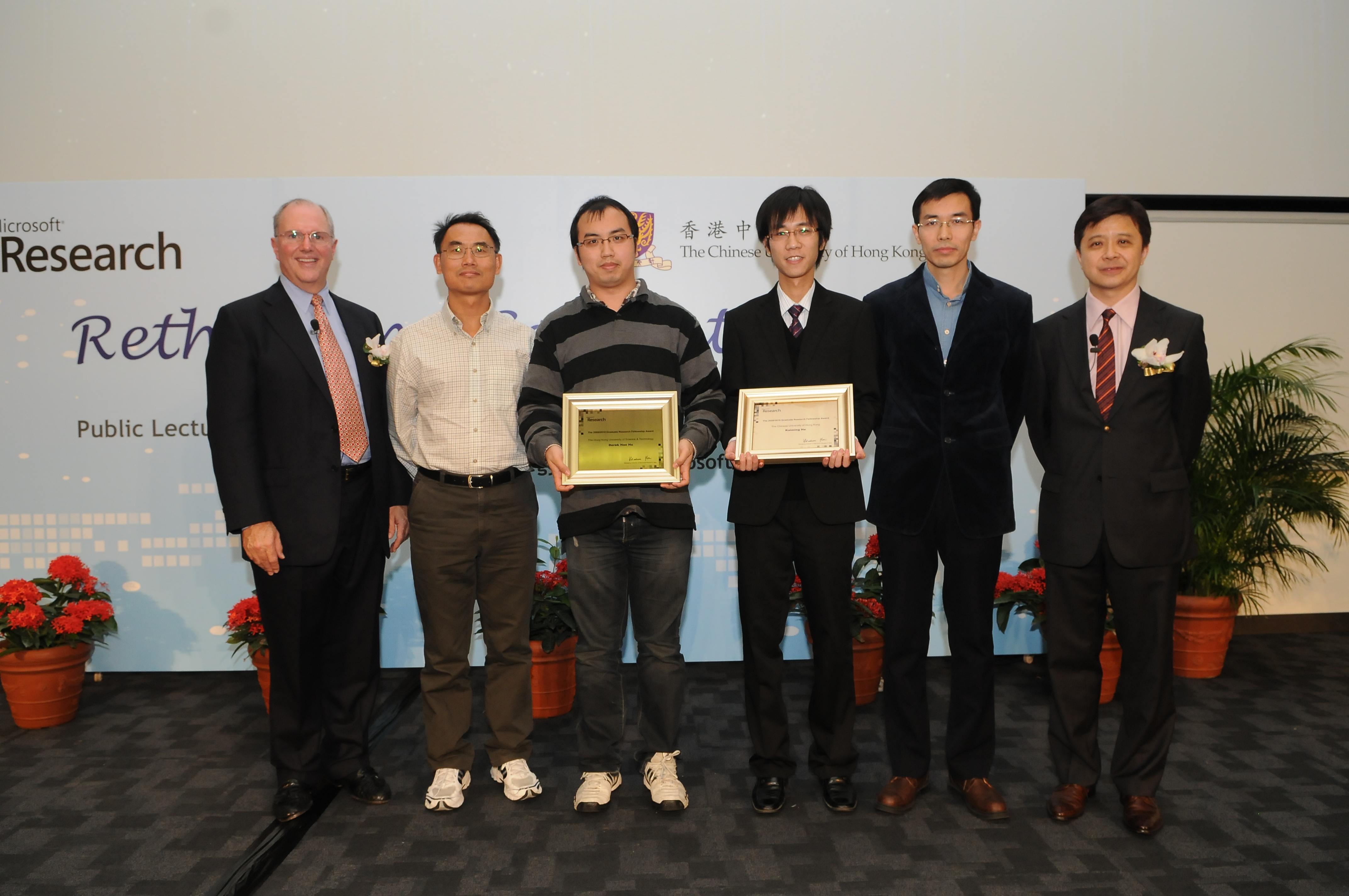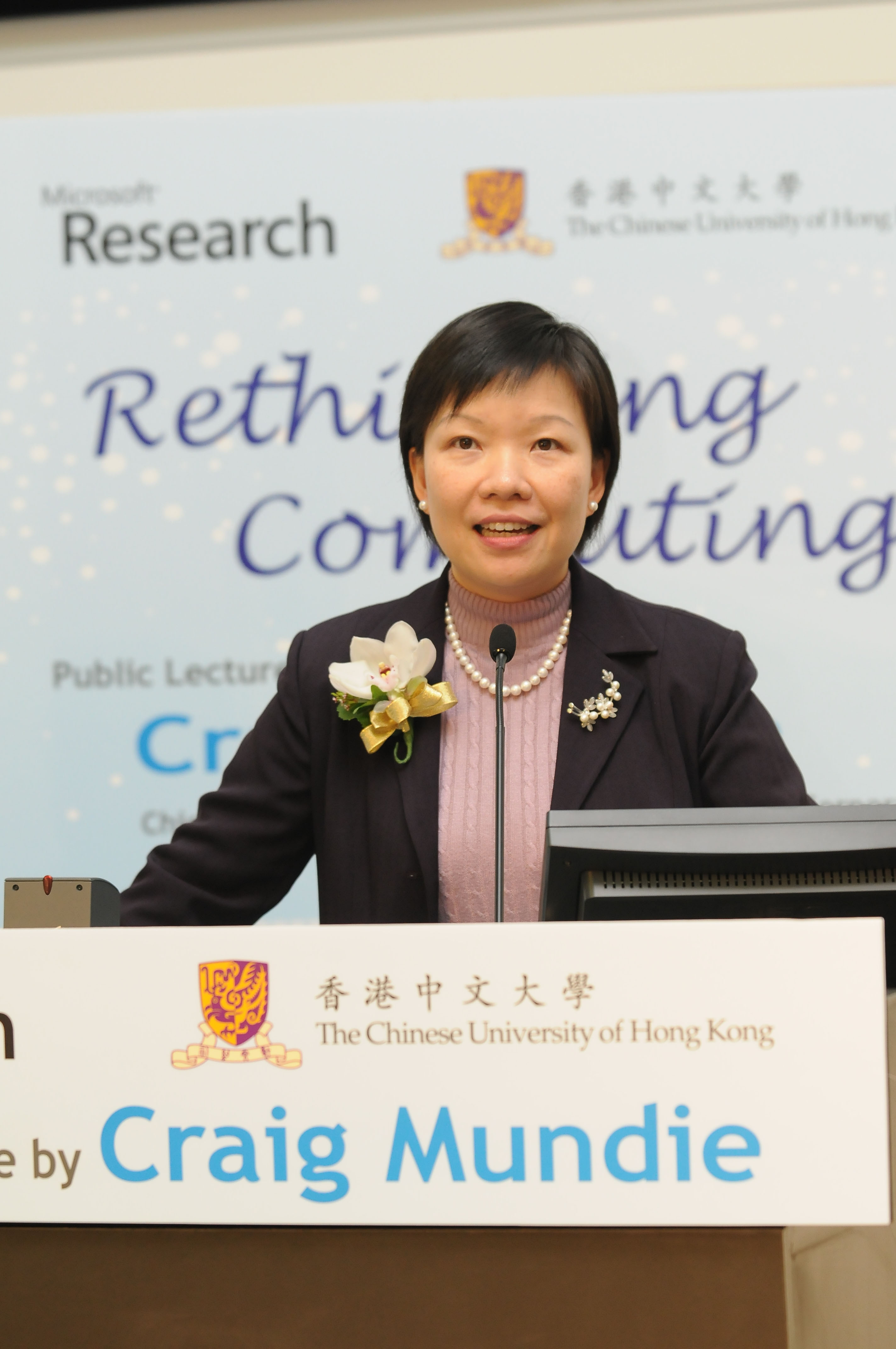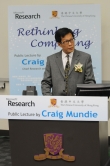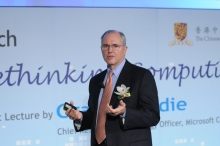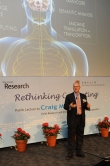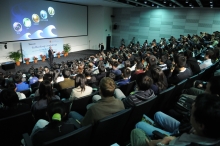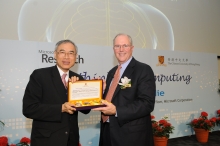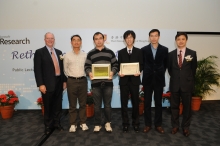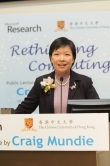CUHK
News Centre
Microsoft Chief Research and Strategy Officer Craig Mundie shared vision for Future of Computing at CUHK Today
16 November, 2009 – Mr Craig Mundie, chief research and strategy officer of Microsoft Corporation, delivered a special presentation at The Chinese University of Hong Kong (CUHK) today to share his vision for the future of computing with over 400 academics and students.
In the presentation, Mr Mundie talked about the technologies that will change how people interact with the world, and discussed the opportunities for every academic discipline to harness the power of computing. Mr Mundie also demonstrated and showcased a number of advanced technologies including spatial computing, anticipatory computing, 3D and natural user interfaces. Mr Mundie described how when combined, they will create a great deal of change, positively impacting important global issues such as education, healthcare, energy and the environment. He also answered questions from the audience.
At the same time, Mr Mundie presented the 2009 Microsoft Research Asia (MSR Asia) Fellowship to the Hong Kong winners. The MSR Asia Fellowship Program is designed to encourage PhD students in the Asia-Pacific region to realize their potential in computer science-related research as well as recognizing and awarding outstanding PhD students. This program aims to facilitate the future growth of junior PhD students who have the potential to become future research leaders. The highly competitive fellowship award winners are offered unique opportunity to do a three to six month internship at MSR Asia in Beijing, working with world class researchers on advanced research projects. Begun in 1999, the program has awarded fellowships to more than 280 PhD candidates from 50 universities and research institutions across the Asia-Pacific region. There have been 25 fellowship winners in Hong Kong.
There are two Hong Kong winners this year: He Kaiming from the Department of Information Engineering in CUHK, and Hu Hao from the Department of Computer Science and Engineering in the Hong Kong University of Science and Technology. He Kaiming has developed a haze removal technology that can remove haziness in photos blurred by fog and smoke. It has important and extensive applications in photo processing, outdoor CCTV systems and analysis of satellite images. Hu Hao has been working on activity recognition both from sensors in pervasive computing and artificial intelligence, and in Web search to recognize Web users’ intention. Both research directions can provide society at large with helpful services.
Mr Craig Mundie is one of two senior executives who took over from Mr Bill Gates, reporting to CEO Mr Steve Ballmer. He oversees one of the world’s largest computer-science research organizations, and is responsible for Microsoft’s long-term technology strategy. Mr Mundie has spent much of his career building startups in various fields including healthcare, robotics, supercomputing, long-term research, and remains active in incubating new technologies and businesses.
For more than a decade, Mr Mundie has served as Microsoft’s principal technology-policy liaison to the US and foreign governments, with an emphasis on China, India and Russia. In April 2009, he was appointed by President Barack Obama to the President’s Council of Advisors on Science and Technology.
Mr Craig Mundie (1st left) presents the 2009 Microsoft Research Asia Fellowship to He Kaiming, PhD student from the Department of Information Engineering in CUHK (3rd right) and Hu Hao, PhD student from the Department of Computer Science and Engineering in the Hong Kong University of Science and Technology (3rd left). Also shown in the photo are: Dr Hon Hsiao-Wuen, Managing Director of Microsoft Research Asia (1st right) and two students' supervisors


